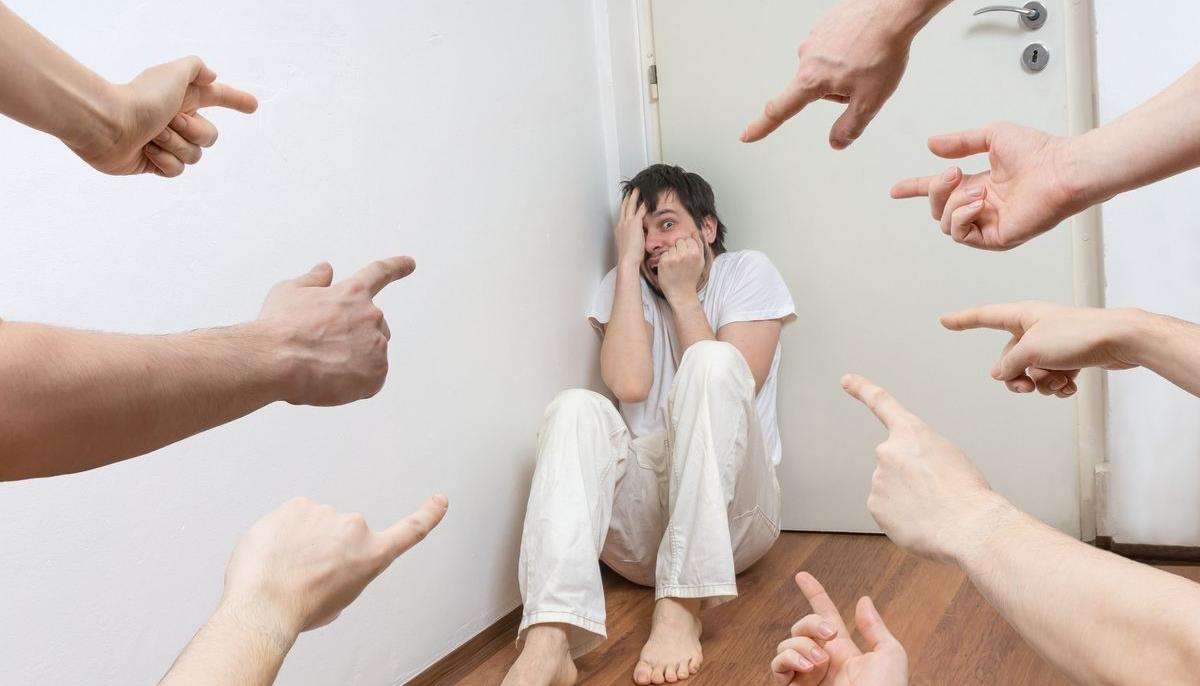The National Institute for Mental Health estimates that approximately 3% of the population experiences an acute episode of psychosis at some point, which is not associated with a chronic mental disorder and which completely resolves without showing chronic evolution.
The acute psychotic episode or acute psychosis represents a psychiatric emergency due to the risks it can have on the patient's life, while psychosis represents a condition manifested by the long-term association of hallucinations and illusions, in the presence of which the patient is disconnected from reality.
What is psychosis and how does it manifest itself?
The term psychosis is used to describe a pathology that affects the psyche in the form of a loss of contact with the surrounding reality. This loss manifests itself through visual, auditory or olfactory hallucinations, delirium and behavioral disorders that determine the inability to adapt to everyday social life. During a period of psychosis, the patient's thoughts and perception of the surrounding world are disturbed, the patient presenting difficulty in distinguishing the real from the imaginary.
Psychosis is a broad term that includes several distinct pathological entities, which may include mental disorders due to organic causes secondary to lesions of various etiologies of the central nervous system, schizophrenia, schizo-affective disorder, affective disorders and bipolar disorder, being diagnosed according to of a series of criteria whose presence is determined by a thorough psychiatric analysis of the patient.
It is important to mention that psychosis differs from schizophrenia, the psychotic patient being able to recognize and understand hallucinations to some extent, unlike schizophrenics who associate incomprehensible psychosis.
The main manifestations and symptoms that make up the clinical picture of psychosis are represented by:
- False beliefs - the patient is suspicious of his surroundings and family members, presenting paranoid ideas
- Auditory and visual hallucinations, but in certain situations they can also affect the other senses
- Ideo-verbal incoherence (incoherent speech)
- Difficulties in focusing and completing professional/school tasks or transitory states of perplexity that over time can lead to a decrease in performance at work or at school
- Sudden changes in psychomotor behavior - restlessness, stupor
- The inability to differentiate reality from imagination
- Personal neglect, poor hygiene, chaotic diet.
Both before and during an acute psychotic episode, the patient may experience depression, anxiety, sleep disturbances, withdrawal from social life, demotivation and difficulty in carrying out daily activities.
What causes psychosis?
The studies carried out up to the present time have not managed to identify a specific cause of psychosis, but it has been observed that the specific manifestations of this disorder are found especially in pathologies such as schizophrenia and bipolar disorder. However, not all patients with psychosis associate schizophrenia or other mental disorders of this type.
Psychosis is generally manifested as a result of the action of a combination of genetic and environmental factors, represented in the vast majority of cases by stressful events or associated physical health conditions, which cause biochemical changes at the level of brain neurotransmitters .
The risk factors involved in the occurrence of psychoses are represented by:
- Lack of a regular sleep schedule
- Periods of major stress
- Birth
- Long-term administration of certain medicinal substances
- Alcohol abuse, drug use and even marijuana use.
The psychotic disorder induced by substances causes visual and auditory hallucinations and other manifestations such as temporary delusions (false beliefs), which generally disappear within a few hours or days after the substance is removed from the body. In the case of long-term substance abuse, the symptoms of psychosis can persist for several months or years, after the metabolism and elimination of the compounds from the body.
The difference between psychosis and an isolated psychotic episode
The difference between an isolated acute psychotic episode and psychosis is given by the evolution of the symptoms, which can be of short or long duration. Acute psychosis is an unstable diagnosis, with a duration of evolution between 1-3 months and can be completely remitted when the patient returns to the previous level of functioning. The onset of symptoms is sudden and in many situations is preceded by insomnia, anxiety, sadness, social isolation or other behavioral disorders.
Psychosis with chronic evolution is a mental disorder composed of several acute episodes, with each new episode the remission being weaker than the previous one. Over time, the evolution becomes chronic with the appearance of interepisodic symptoms, with the risk of the disease transitioning to schizophrenia.
Common warning signs of psychotic disorders
In most situations, patients show behavioral changes that precede the onset of psychosis. These manifestations are usually represented byȘ
- Decrease in school and/or professional performance
- Communication difficulties
- Withdrawal from social life
- Deficient personal care
- Thought disorders and hallucinations.
It is important that in the presence of these changes in mood and behavior, the patient's family and entourage seek a specialized medical consultation, for the early prevention of the patient's unfavorable evolution.
The absence of a treatment plan corresponding to this category of patients can lead to the loss of contact with reality by the patient, who resorts to school absenteeism, unemployment, distance from family and entourage, withdrawal from society, vagrancy, substance abuse or suicide.
Treatment of psychotic disorders
The treatment of psychotic disorders is addressed to patients who present clinical manifestations specific to this disease and is established by the psychiatrist following a detailed specialist consultation. Psychosis therapy can be difficult to establish due to the risk of acute decompensation of the patient, who presents unpredictable behavior and may develop spontaneous episodes of violence.
Currently, it is considered that the rapid initiation of treatment, as close as possible to the first manifested symptoms of psychosis, increases the chances of the patient's total recovery, with the regaining of functions prior to the illness and the complete disappearance of acute episodes of psychosis. In certain situations, however, the specific therapy can help the patient to resume his daily professional and social activity, even if the remission of the disease is not complete and from time to time residual symptoms of the disease can still be observed.
The main components of psychosis treatment are represented by:
- Group or individual therapy : based on the principles of cognitive behavioral therapy, this type of treatment is tailored to the individual needs of each patient and aims to teach behaviors that help the patient adapt to different situations
- Education and family support : the effective treatment of patients with psychosis must include educating the family and relatives about this mental disorder and preparing them for good communication and active support of the patient in the healing process
- Pharmacotherapy : aims to reduce the patient's symptoms, the doses of antipsychotics, tranquilizers or thymostabilizers being individualized for each individual case, by the attending physician. The duration of the treatment is determined according to the number and severity of the psychotic episodes, but usually after the 3rd episode of acute psychosis, it is recommended to take the medication for the rest of the life
- Reintroduction into society and educational groups : these services aim to reintroduce the child/adult into society and into educational programs to ensure a good development of the patient from a social and professional point of view.







